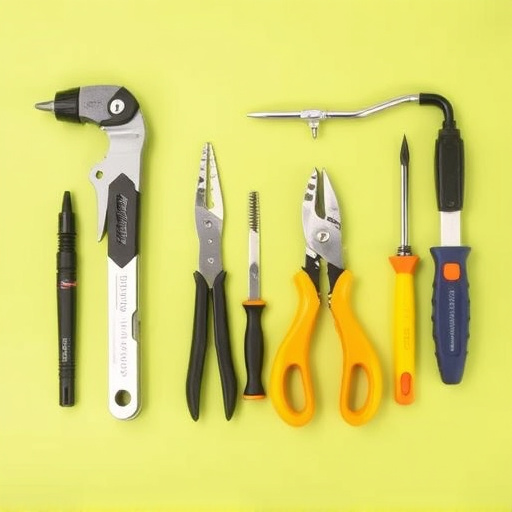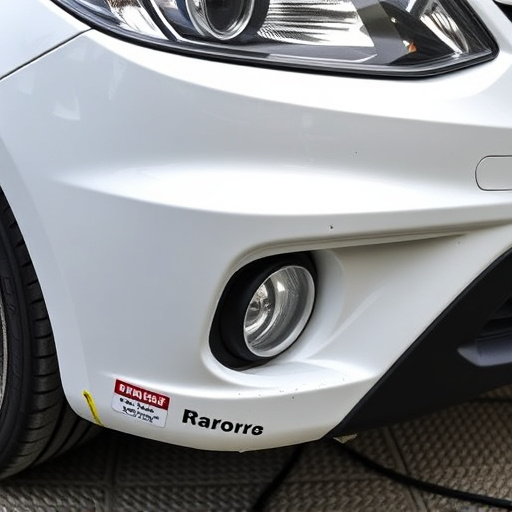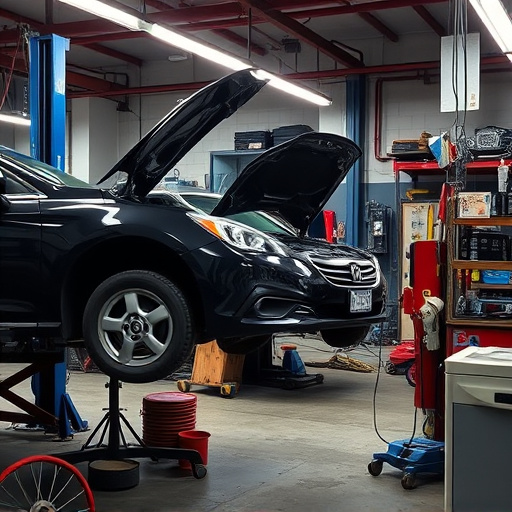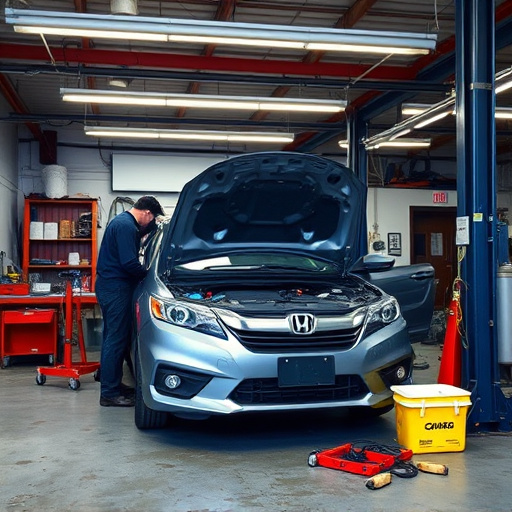The ultrasonic thickness gauge is a versatile tool that enhances quality control and safety in various industrial sectors, from metal fabrication to automotive repairs. Its precision allows manufacturers to monitor material thickness, ensuring consistency and defect prevention. In automotive applications, it maintains OEM standards in paint repairs, guaranteeing aesthetic quality and structural integrity. This technology, employing advanced acoustic waves, is invaluable for material science, including car paint services, fender repair, and structural assessments, as well as in quality control, material research, and non-destructive testing across diverse sectors. It streamlines operations, reduces waste, and increases precision, ultimately leading to enhanced product quality and durability.
Real-life stories reveal the transformative power of ultrasonic thickness gauges across diverse industries. From manufacturing to material science, these non-destructive testing tools have revolutionized processes, ensuring quality and safety. This article explores their industrial applications, unravels the secrets they unveil in material science, and highlights how they streamline processes from prototyping to production. Discover why these precise devices are indispensable assets for any operation demanding accurate thickness measurement.
- Industrial Applications: Ensuring Quality and Safety
- Material Science: Unlocking Thickness Secrets
- From Prototyping to Production: Streamlining Processes
Industrial Applications: Ensuring Quality and Safety

In various industrial sectors, the ultrasonic thickness gauge plays a pivotal role in ensuring quality and safety standards. This innovative tool is widely utilized in manufacturing processes to measure material thickness accurately, which is essential for maintaining consistency and preventing defects in produced goods. For instance, in metal fabrication, these gauges help monitor sheet metal thickness during rolling or stamping operations, enabling manufacturers to adhere to strict tolerances.
Moreover, industrial applications extend beyond raw materials; they are invaluable in quality control of finished products. Auto repair shops and collision repair centers often rely on ultrasonic thickness gauges for vehicle paint repair. By accurately assessing the thickness of repainted areas, these facilities guarantee that repairs meet original equipment manufacturer (OEM) standards, ensuring both aesthetic appeal and structural integrity. This meticulous attention to detail is crucial in maintaining customer satisfaction and safety on the road.
Material Science: Unlocking Thickness Secrets

In the realm of material science, understanding the intricacies of thickness is paramount for various industries, from automotive manufacturing to precision engineering. This is where ultrasonic thickness gauges step in as indispensable tools. By utilizing advanced acoustic waves, these devices penetrate materials and measure their depth with remarkable accuracy. This technology has unlocked secrets hidden within layers of car paint services and car body repair, enabling precise assessments of fender repair and other structural components.
Beyond the automotive sector, ultrasonic thickness gauges find applications in diverse fields. From quality control in manufacturing to material research, these tools provide invaluable insights into the composition and integrity of materials. Their non-destructive nature ensures that products can be inspected without causing damage, making them a game-changer for ensuring high-quality standards in various industries, including those involved in complex fabrication processes like fender repair.
From Prototyping to Production: Streamlining Processes
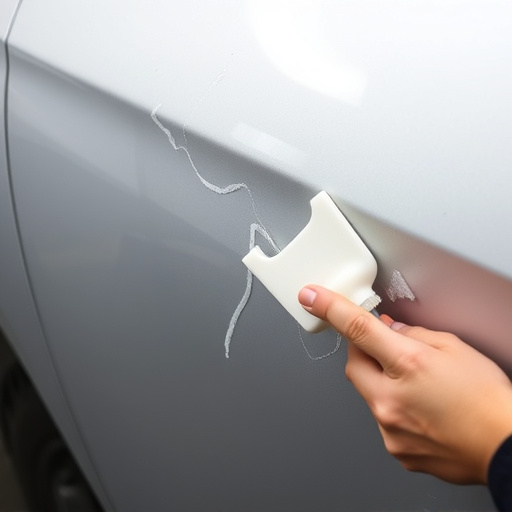
In the realm of manufacturing and craftsmanship, precision is key, and this is where ultrasonic thickness gauges play a pivotal role in streamlining processes from prototyping to production. These innovative tools enable professionals to accurately measure material thickness with remarkable speed and ease. For instance, in vehicle restoration, auto body repairs require meticulous attention to detail. Ultrasonic thickness gauges provide repair technicians with real-time data, ensuring they can identify areas needing enhancement or replacement, thus achieving a seamless finish.
This technology is not limited to the automotive industry; it finds its utility in various sectors such as metal fabrication and composite material production. By integrating ultrasonic thickness gauges into their workflows, manufacturers can optimize their operations, reduce waste, and enhance overall efficiency. For those seeking reliable auto repair near me, adopting this technology could be a game-changer, ensuring repairs are not just effective but also precise and long-lasting.
Ultrasonic thickness gauges have proven their worth across various industries, from manufacturing to material science. By offering precise and non-invasive measurements, these tools enable enhanced quality control, streamline production processes, and unlock valuable insights into material properties. As technology advances, the role of ultrasonic thickness gauges is set to grow, making them indispensable for achieving excellence in real-world applications.
